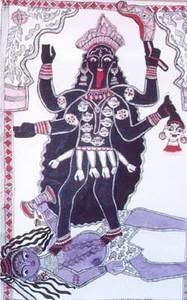Monday, March 29, 2004
Two Interesting Excerpts
"As an experiment, go into an average American home and inventory the furnishings. Check everything that was bought new for cash from a store. Those transactions registered on the economic screen. Everything else--inherited portraits, borrowed chairs, wedding gift silver, tables from garage sales, homemade bookcases--to some extent or another slipped beneath the economic radar. Yet they represent transactions that are significant in social terms, even if neither money nor sales taxes were paid." (p. 170, Seeing Anthropology by Karl G. Heider) "...Take an American middle-class ten-year-old's birthday party. The birthday child invites a dozen friends, each of whom brings a gift having a value of a few dollars. The children get food (ice cream, cake, soft drinks), perhaps a minor present to take home, and entertainment (home games, an expedition to a skating rink, or the like). During the next year, the birthday child can be expected to be invited to 12 birthday parties, and should bring an exactly comparable present (sometimes, depending on the current fads, it is the same thing--a Barbie doll or Pokemon trading cards, for example). At the end of the annual cycle, everyone should be about equal. There should not be any great variations in cost of the present, impressiveness of the entertainment, and the like. So what's the point? Obviously, one function of this shuffling about of interchangeable goods and services is to strengthen ties by keeping everyone constantly in someone's debt. The social network is being constantly strengthened. A birthday party, in Mauss' words, allows us to 'catch the fleeting moment when the society and its members take emotional stock of themselves and their situation as regards others.' (Mauss, 1925/1954:77,78) Seeing Anth, p. 202
Posted by carrie at 3/29/2004 09:05:00 AM
Subscribe to:
Comment Feed (RSS)













|